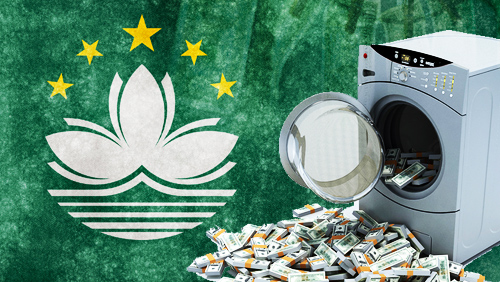It turns out those “helpful policies” that Beijing promised to enact in order to help Macau were just more anti money laundering regulations. They are all directed at the VIP segment. The announcement of these helpful policies are what catalyzed Wynn into forming and holding a double bottom in October and January at $50 a share. The hope that these policies would somehow loosen the stranglehold that Beijing has on the junkets are behind Wynn’s doubling in price since then. But since that doubling, Wynn’s VIP turnover has dropped another 21.4%, quarter over quarter, and this after dropping over 50% from 2014 to 2015. There is no reason for Wynn to double under these conditions, and risk-oriented investors can now short it.
Most of the new regulations are not good, but one part is. I admit I did not read the original release by the Gaming Inspection and Coordination Bureau and am relying on secondary sources here as my Portuguese and Chinese are not up to par. In fact, I don’t even know a single word in either language, which in itself does take a fair amount of talent. The good part is also quite revealing for who it is directed at, and that is “politically exposed persons”. Sources say that covers government officials, state-owned company executives and communist party operatives. Forbidding tax-receiving lawmakers and beneficiaries of forced monopolies from moving money around is a good thing, if not for business then for the sake of (very loose) justice. The more interesting part is that if Beijing is tightening its regulations against state officials and their cronies, that means that much of the money laundering is being done by them, which I think is the dictionary definition of chutzpah.
In other words, Macau money laundering may be functioning primarily as a filter so that the political class do not have to return anything back to the State. This has business cycle implications, because all that money constitutes artificial demand similar to the military industrial complex. Just as the military industrial complex depends on “defense” (read empire) spending at the whim of politicians, much of Macau’s VIP revenues may actually just be politicians and state-protected monopolists trying to hide their stash rather than legitimate businessmen trying to evade taxes, which would be much healthier in the long run. The latter would be real demand, the former fake and dependent on government spending and tax revenues. So while it is always fun to see the State crack down on itself, it further exposes the hollow core at the heart of the Macau VIP business.
Besides that for Wynn, its debt is still going up, partly in order to fund the new Wynn Palace scheduled to open next quarter. A disappointing start for the new casino could easily pound the stock back down. Galaxy Entertainment is in a much less precarious situation investment wise at least. While not a buy and equally exposed to a tighter clampdown, at least it Galaxy shares are not up 100% off their lows like Wynn.
